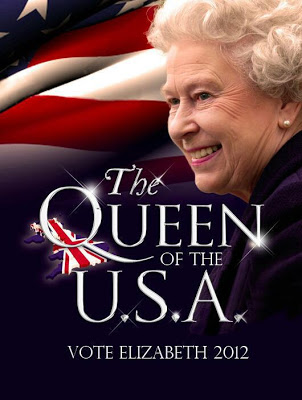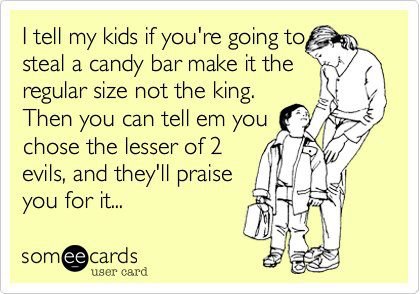
Back in August I promised that my Facebook page would remain a presidential-election-free zone for the next three months, a status which received 34 “Likes,” suggesting that I was not the only person already sick to death of the whole thing. Unless sharing a tongue-in-cheek meme advocating the “candidacy” of Queen Elizabeth II (which got 33 “Likes”) counts as an exception, I’ve kept that promise, posting as much about unrelated royal, historical, musical, religious, and personal topics as possible in hopes of providing something different. But silence isn’t much of a statement if one never explains why one has remained silent.

It is no secret that I am a monarchist, believe the American Revolution to have been unjust, and would indeed prefer Queen Elizabeth II to any president. I have no principled argument with anyone who says that if that’s the case I should immigrate to Canada or the United Kingdom. Perhaps I should. But that’s actually not what I want to focus on at the moment, since I don’t believe it should be necessary to hold these particular views in order to arrive at the conclusion that it is better not to participate in American politics.
Let me put it bluntly: I hate the presidential election and everything about it. No, not either major candidate. I suppose that both of them are nice men who love their wives and children. I don’t like them, but neither do I hate them. Indeed, one of the few consolations of my abstentionist position is that it frees me from the obsessive hatreds of particular candidates, parties, and presidents that seem to poison the minds of so many Americans. But I do hate this process and this system. I detest the way it takes so long, seemingly longer every cycle, so that politicians are essentially always campaigning and the nation is expected to think of little else, constantly bombarded with incessant election coverage for months, even years, on end. (Democracy, whatever its flaws, does not actually have to be this way; in Canada, for example, campaigns are sensibly limited to five weeks.) I cringe at the way vast sums of money that could be put to so many better uses are squandered on endless advertising and interminable campaigning (which makes me all the more angry when anti-royalists in the United Kingdom dare to complain about the allegedly high cost of the British Monarchy).
But most of all, I hate what The Election does to people, not least on Facebook. It saddens me to see how many Americans apparently become convinced that all Goodness is on their candidate’s side, and all Evil is on his opponent’s side, as if such a simplistic black-and-white view could ever correspond to the reality of human nature. On some topics many people are apparently unable to admit that a decent and reasonable person could possibly hold the contrary viewpoint, which is distressing for me to see given that I know people who mean a lot to me on both sides of all the most polarizing issues in American politics. Some make dire predictions of apocalyptic catastrophe if the wrong candidate wins, when in all probability we’ll muddle along as we always do regardless of what happens tomorrow. I’ve heard of people ending Facebook “friendships,” perhaps also real ones, because someone supported the wrong candidate or had the wrong opinion. (I myself ended up “unfriending” someone, ironically a Canadian, after he repeatedly insulted me for disagreeing with his assertion that American Catholics are obliged to vote a certain way.)
This is madness! Anything that makes people act as the presidential election does cannot possibly be a good thing, and cannot be reformed by simply electing one candidate rather than another. And yet we are supposed to believe that our system of government is a wonderful thing that other countries ought to imitate? On the contrary, this year’s campaign, more than any of its predecessors, has thoroughly convinced me that the whole Presidential Election racket is one of the most inherently divisive and poisonous anti-human monstrosities ever concocted. What I’ve seen online regarding the election is mostly inanity, distortions, propaganda, partisanship, enmity, and bitterness. I reject it totally and have never been so confident in the rightness of having nothing to do with it.
It might be pointed out that to a certain extent this sort of polarization can be observed in any democratic country, but as a monarchist I do believe that electing a head of state, the person who will not only run the government but will also represent the country in the eyes of the world, greatly magnifies the problem compared to a parliamentary constitutional monarchy where the symbolic leader is not a product of the political process and can therefore be admired even by opponents of the current government. I do not believe there is any other democratic Western country in which it seems like for eight years half the country despised their head of state and now the other half does. This is not something of which to be proud.
I must stress that it is not my intention to demonize all American politicians and their supporters. I know there are good people in politics, especially at the local level. The point is that elections do strange things to otherwise decent and rational people. I would concede that it makes more sense for an individual to participate in local and perhaps also state politics than in national. I personally don’t feel enough of an emotional connection to where I currently live to do so, but I can understand why people who have a stronger sense of being rooted in a particular place, are parents of young children, or are directly affected by various ballot measures might decide to vote locally. But let’s not kid ourselves—the presidential contest dominates all election discussion and coverage, perhaps this time even more than usual, which in itself speaks volumes about what’s wrong with American politics. Americans who expect to be despondent if their preferred presidential candidate loses should ask themselves if this doesn’t suggest that the presidency itself has accumulated far too much power, more than any medieval king ever wielded, no matter which party holds the White House.
Even some of those who, like me, don’t care much for the American system and are not enchanted with either candidate will vote anyway, perhaps telling themselves that they are voting for the “lesser of two evils.” But even if one could be sure that a particular candidate is indeed the “lesser evil,” how on earth is this a sound moral principle? A “lesser” evil is still evil. (There’s a witty internet meme that bitingly suggests teaching children to steal a small candy bar rather than a large one, as that would be the “lesser evil.”) Why endorse evil at all? As one perceptive online critic of modern democracy observed, ‘Perversely, in the electoral process a vote "against" a candidate actually amounts to a vote for him if he is elected; by voting, one confirms the process, and implies a pledge to accept the authority of whoever is elected by majority.’

That’s why I dismiss the cliché with which non-voters are often rebuked: “if you don’t vote, you can’t complain.” On the contrary, I think that if there is anyone who shouldn’t complain, it is those who know that neither candidate actually shares their values but vote for one of them anyway, implicitly legitimizing the system by their participation, obediently trudging to the polls year after year in the vain hope that this time, choosing the “lesser evil” will solve anything despite all past experience and evidence to the contrary. Sometimes in life one really must choose a “lesser evil”: for example, while losing a leg is a bad thing, if the only alternative is death from infection, obviously it is better to amputate the leg. But this is never the case with elections, in which there is always a third choice: refusing to participate.
Some people who share my disenchantment with the two major parties will insist that voting for a marginal “third-party” candidate most people have never heard of, and who has no chance of winning, is the solution. But in contrast to European parliamentary democracies where smaller parties can make a genuine difference and even participate in coalition governments, the American “winner-take-all” system is monolithically stacked against any alternative to the two major parties—who for all their fierce rhetoric actually agree on far too much—and is likely to remain so, making it difficult to explain why voting for a third-party candidate will have any more impact than not voting at all.
Many Americans, perhaps especially Christians, are under the impression that they have a “Duty” to vote whether they like it or not. I am not sure where in the Bible (which does mention paying taxes, but not voting) this alleged “Duty” comes from. I would think Christians ought to be more concerned with whether the modern Western fixation with “Democracy” is in danger of becoming a sort of idolatrous religion of its own, with Voting its chief “sacrament.” Not only do I deny that this obligation necessarily exists, I even think that under our present circumstances there can be such a thing as a duty not to vote. Catholic philosopher Alasdair MacIntyre put it best:
"When offered a choice between two politically intolerable alternatives, it is important to choose neither. And when that choice is presented in rival arguments and debates that exclude from public consideration any other set of possibilities, it becomes a duty to withdraw from those arguments and debates, so as to resist the imposition of this false choice by those who have arrogated to themselves the power of framing the alternatives."Now I realize that some Americans are genuinely enthusiastic about one of the two presidential candidates, and if you are one of them I don’t expect you to agree that both alternatives are “intolerable.” For you the system is not yet broken. Fine. I hope I’ve explained my own position satisfactorily but I don’t expect to change your mind. I’m more interested in trying to reach those who have no such enthusiasm, yet cling to “lesser-evilism” and the alleged “obligation” to vote. I think what I wrote at my blog in 2008 remains true this year: the system is the problem, and there is no way to vote against the system. I don’t know what the solution is, but I do know that statistically you are more likely to be struck by lightning on your way to the polling place than to change the outcome of the election with your vote.
There are so many things you could do tomorrow that are more worthwhile than voting. Read a book. Play or listen to music. Visit a museum or art gallery. Watch a movie, preferably one set in the distant past or an imaginary world. Go out to eat with friends. Create something artistic. Play a game or sport. Take a walk outside. Listen, really listen, to a child—they often have more sense than adults. (I’m thinking of the four-year-old girl widely seen online who quite understandably burst into tears because she was tired of hearing about the election.) Bake chocolate chip cookies and eat them warm with cold milk. If unlike me you’re fortunate enough to be married or in a relationship, do something special for your significant other. If you’re religious, pray. But whatever you do, don’t give in to the political hype. Set yourself free. Opt out of the game. Refuse to put yourself in one of two narrow boxes. Say no to manufactured partisanship that needlessly divides you from people you might otherwise like. And consider that there is an honorable alternative: the right to abstain from a noxious phenomenon that is not worthy of your time.
--Theodore Harvey
November 5, 2012